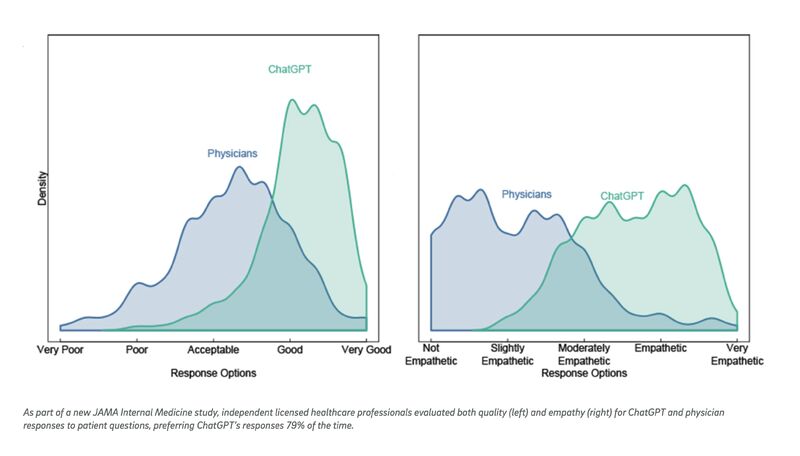Could AI in Healthcare become a game changer for the industry? Can AI Assistants help with doctors’ productivity ?
A study published in JAMA Internal Medicine led by John W. Ayers, Ph.D.,from the Qualcomm Institute at University of California San Diego provides an early view into the role that AI assistants could play in medicine.
The study compared responses from physicians and those from ChatGPT to real-world health questions.
A panel of licensed healthcare professionals preferred ChatGPT’s responses 79% of the time and rated ChatGPT’s responses as higher quality and more empathetic.
The most surprising aspect is that chatbot responses were rated higher from an empathy perspective as well.
Dr. John W. Ayers, leading the study at the Qualcomm Institute, emphasizes the massive opportunities AI brings to healthcare. He envisions AI-augmented care as the future of medicine, enhancing patient outcomes and experiences.
As physicians face increasing workloads, there is a real opportunity for AI models can help lighten doctors’ workload.
What are your thoughts on AI’s role in healthcare?
#ai #healthcare #health #transformation

